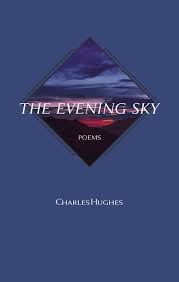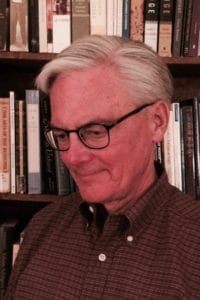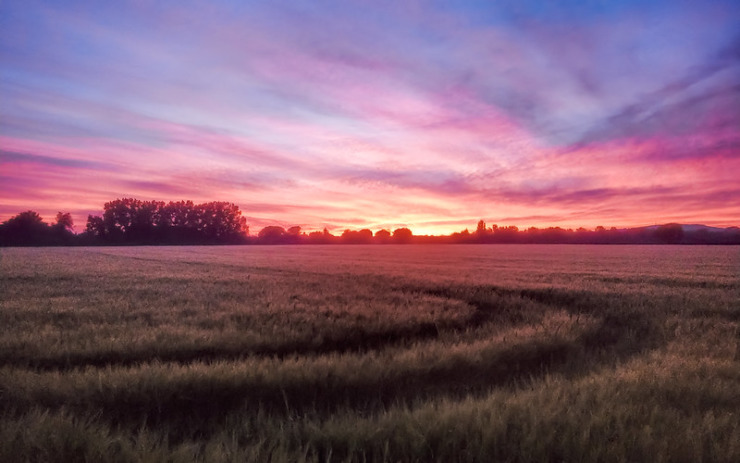Poet Charles Hughes teaches us something about poetry—and about the evening sky. When you see the sky of a fading day, late afternoon turning to twilight, you may see a sky of sunlit and kaleidoscopic brilliance, or a sky of muted pastel color, or even neutral grays and whites and fading blues. Hughes sees those things, too. But he also sees life.
His latest collection, The Evening Sky, is a slender volume of 31 poems exploring and honoring family, memory, people, children, Christmas, faith, and joy. One poem, “Elegy for My Father,” contains six connected poems exploring key events in his father’s life—events that shaped that life, and thus his own.
Retired from the practice of law, Hughes is a poet who sees his own evening sky. His poems show a growing awareness of both mortality and the understanding of what truly matters in a life. As you age, what matters, what brings joy, is not what someone’s politics might be but the simple act of holding your wife’s hand as you fall asleep at night.
Doxology at Sixty-Six

Or poke around inside an open wound
Time hasn’t healed—or fear the fears festooned
Across the future’s pitch-dark passages.
Joy is real. Joy comes and goes, but joy does come,
The way a prayed-for summer storm blows in
(Though minus the big-crazy-dog-like din).
From love, I’d say, if asked where joy comes from.
We’ve been out to a movie. We’re in bed.
We read, then switch the lamps off, kiss goodnight.
Hands find each other. Fingers interlace.
Earth’s pain grinds on (we’re past being misled)
But now gets swept away from the mind’s sight
By joy seeming to overflow a place
Apart—joy troubled less than a lush trace
Of spring—unearthly joy. I know her face.
This sense of quiet blessing permeates the poems. This is especially true for the blessing of memory and remembrance, which can be a tricky thing. But even when it can deceive and disguise, memory can itself be a blessing—the memory of a boy thinking of playing football after school while the Vietnam War rages, a special baseball game, moving to a house you love but your parents can’t afford, a conversation overheard at the library.

Charles Hughes
A native of Chicago, Hughes received his B.A. and law degrees from Augustana College in Illinois. He worked as a lawyer for 33 years until his retirement. His first poetry collection, Cave Art, was published in 2014. His poems have been published in numerous literary and religious publications, including Alabama Literary Review, The Christian Century, Iron Horse Literary Review, Literary Matters, Sewanee Theological Review, and others. He received the Edgar Bowers Award from the Georgia Poetry Society in 2013, was the 2015 River Readings Poet at Augustana College, and served as the Walter Dakin Poetry Fellow at the Sewanee Writers Conference in 2016. He and his wife Bunny live in Chicago.
The Evening Sky displays the poetry that is life, the poetry that reminds us of what matters in life. As he writes in the final poem, “Loves Keeps the Evening Sky,” it is the memory of a dive across home plate in a boyhood baseball game that taught him “a certain confidence, / A sudden-onset faith in time itself –—/ In time’s forbearance.” It’s a lovely, profound collection.
Photo by sagesolar, Creative Commons, via Flickr. Post by Glynn Young.
__________________________

“I require all our incoming poetry students—in the MFA I direct—to buy and read this book.”
—Jeanetta Calhoun Mish
- Longfellow’s “Paul Revere’s Ride”: Creating a National Legend - April 17, 2025
- Poets and Poems: Katie Kalisz and “Flu Season” - April 15, 2025
- Poets and Poems: Michelle Ortega and “When You Ask Me, Why Paris?” - April 10, 2025

Megan Willome says
That’s a lovely poem for a long marriage.